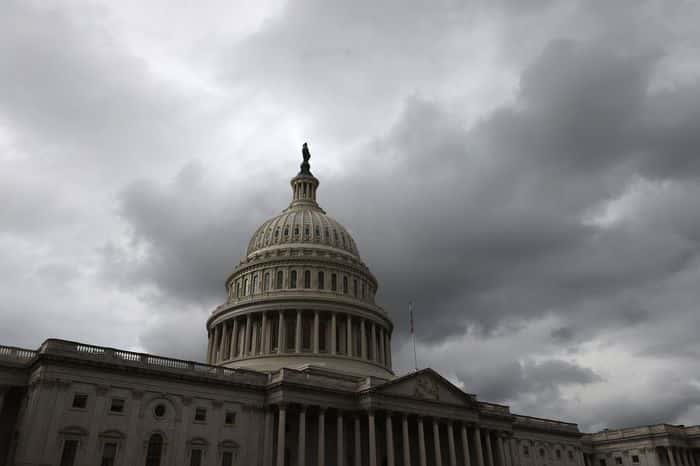The nonpartisan agency’s latest 30-year outlook reveals a projected record-high public debt of 181% of American economic activity by 2053, compared to an estimated 98% by the end of the current budget year.

The CBO has released a concerning report on the US government’s financial situation, indicating continuously rising deficits, increased government spending, and a heavy reliance on debt
This growing debt burden reflects the government’s dependence on borrowing to fund critical programs such as Social Security, Medicare, defense, infrastructure, and various other initiatives benefiting millions of households.
While the escalating debt is not entirely surprising, the CBO’s figures provide some relief by showing lower annual deficits after 2042 compared to last year’s projections. The improvement is attributed to reduced borrowing costs and interest rates in the CBO’s model. However, the report serves as a clear warning that spending will increase significantly after 2026, primarily due to rising healthcare and Social Security expenses associated with an aging population and a projected decline in the labor force participation rate.
The Congressional Budget Office (CBO) also expects an increase in revenues after 2026, largely driven by the expiration of individual income tax cuts implemented under the Trump administration. However, conflicting interests arise as the White House seeks to retain some tax cuts while the GOP aims to make them permanent, potentially resulting in lower revenues than anticipated by the CBO.
For the current year, the CBO projects a 2-percentage-point increase in debt as a percentage of the gross domestic product compared to last year’s estimate in the long-term budget impact report.
In addition, the report forecasts the US unemployment rate reaching 4.7% this year, although the current rate stands at 3.7%
Coinciding with the report’s release, President Joe Biden delivered a speech in Chicago, highlighting the nation’s economic growth following the unprecedented pandemic. While Biden emphasized the US’s robust economic recovery and job creation, the CBO report cautions that factors like persistently high inflation could impact the government’s long-term fiscal position.
The nation’s fiscal health took center stage during recent debates on the debt ceiling. Republicans called for significant spending cuts in exchange for raising the debt ceiling, while the White House and Democrats insisted on separating the two issues to prevent a national default. Ultimately, an agreement was reached to suspend the debt limit until 2025, accompanied by spending restrictions, work requirements for older adults receiving food aid, and approval for a controversial natural gas line opposed by many Democrats.
READ ALSO: Illegal Migrants In NYC Surpass Local Homeless Population




